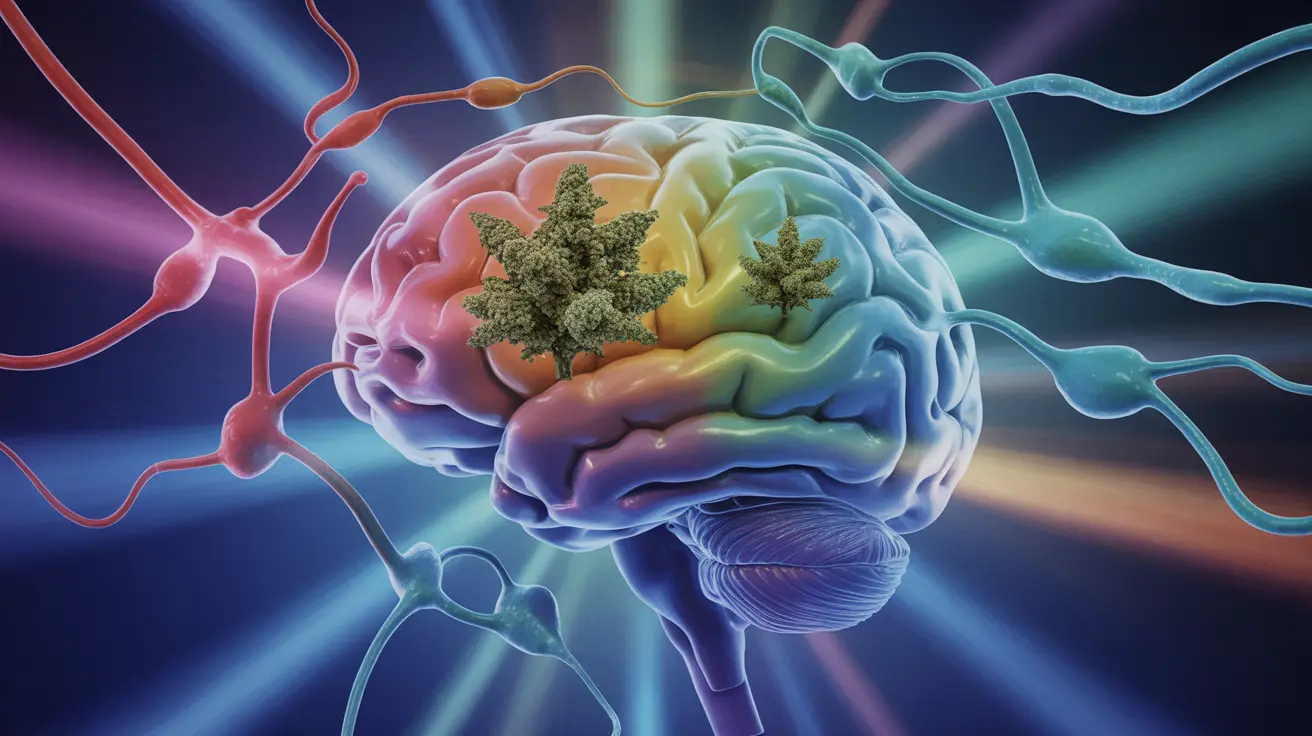The relationship between THC (tetrahydrocannabinol) and seizure management has become a topic of significant interest in the medical community. As more states legalize medical marijuana, patients and healthcare providers are increasingly exploring cannabis-based treatments for epilepsy and seizure disorders. Understanding the role of THC in seizure management is crucial for making informed treatment decisions.
While CBD has gained widespread recognition for its anti-seizure properties, THC's potential benefits and risks in epilepsy treatment require careful examination. This article explores the current scientific understanding of THC's effects on seizures and its role in epilepsy management.
The Science Behind THC and Seizures
THC interacts with the body's endocannabinoid system, which plays a role in regulating neurological function. This interaction affects various brain processes, including those involved in seizure activity. Research suggests that THC's ability to modulate neurotransmitter release may influence seizure threshold and frequency in some patients.
However, the relationship between THC and seizure control is complex. While some studies indicate potential benefits, others highlight concerns about THC's varying effects on different types of seizures and individual patients.
Comparing THC and CBD for Seizure Management
Unlike THC, CBD has been extensively studied and FDA-approved for certain forms of epilepsy. The key differences between these cannabinoids include:
- CBD is non-psychoactive and has a well-documented safety profile
- THC produces psychoactive effects and may have more variable outcomes
- CBD has proven effective for specific types of epilepsy
- THC's effectiveness varies more significantly between individuals
Potential Benefits and Risks of THC for Seizures
Possible Benefits
Some research suggests that THC may offer certain advantages in seizure management:
- Potential reduction in seizure frequency for some patients
- Anti-inflammatory properties that may benefit neurological health
- Possible synergistic effects when combined with CBD
- Relief from associated symptoms like anxiety and muscle tension
Known Risks and Concerns
Healthcare providers and patients should be aware of several potential risks:
- Increased seizure activity in some individuals
- Cognitive and memory effects
- Drug interactions with anti-epileptic medications
- Variance in product quality and consistency
- Legal considerations depending on location
Current Treatment Recommendations
Medical professionals generally recommend FDA-approved treatments as first-line options for seizure management. Cannabis-based medications containing primarily CBD, such as Epidiolex, have established safety and efficacy profiles for specific types of epilepsy.
For patients considering THC-containing products, medical supervision is essential. Treatment should be carefully monitored and adjusted based on individual response and side effects.
Frequently Asked Questions
Is THC effective and safe for controlling seizures in people with epilepsy?
The effectiveness and safety of THC for seizure control varies significantly among individuals. While some patients report benefits, scientific evidence is limited, and THC may increase seizure risk in certain cases. Medical supervision is essential when considering THC for epilepsy treatment.
How does THC differ from CBD when used for seizure treatment?
THC is psychoactive and has less consistent effects on seizures compared to CBD. While CBD has FDA approval for certain forms of epilepsy, THC's role in seizure treatment is less well-established and may carry additional risks and side effects.
What are the potential risks or side effects of using THC for epilepsy?
Risks include possible increased seizure activity, cognitive effects, drug interactions with anti-epileptic medications, and psychoactive effects. Side effects can include memory issues, anxiety, and coordination problems.
Can medical marijuana with high THC content increase the risk of seizures?
Yes, high-THC cannabis products can potentially increase seizure risk in some individuals. The response varies significantly between patients, making medical supervision crucial when using THC-containing products.
Are there any approved cannabis-based treatments recommended for seizures or epilepsy?
Yes, the FDA has approved Epidiolex, a CBD-based medication, for certain types of epilepsy. This medication contains minimal THC and has demonstrated effectiveness in clinical trials. Other cannabis-based treatments should be discussed with healthcare providers.




